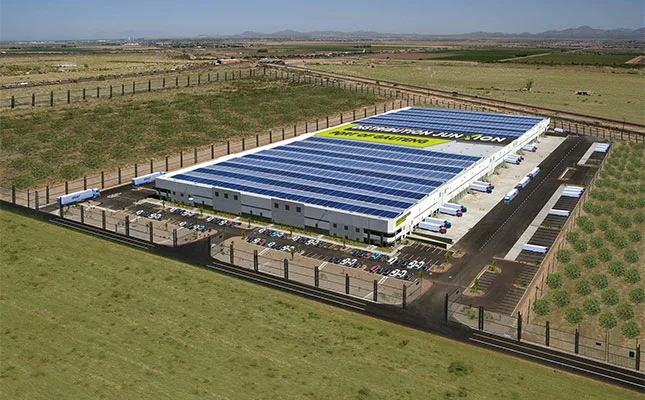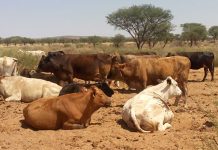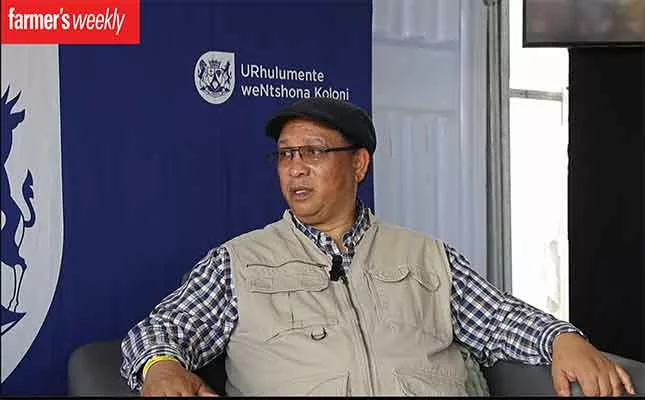
This was according to Grain SA CEO Tobias Doyer, who spoke to Farmer’s Weekly after the release of a White Paper by the private-sector developers of the Port of Gauteng on 30 September.
The paper, titled Solution to South Africa’s Most Important Freight Corridor, details a plan to improve South Africa’s freight transport system in line with the National Development Plan 2030.
According to Doyer, the establishment of the Port of Gauteng was an encouraging development for South Africa’s agricultural economy and came at a critical time when the agricultural logistics system was under severe strain.
Construction on the port is set to begin in 2027, with no projected end date yet. Developer Francois Nortjé describes it as a “strategic, high-capacity inland logistics hub designed to serve as the principal intermodal gateway for South Africa’s economic powerhouse — the Gauteng province”.
Speaking at the launch of the White Paper, port developer Francois Nortjé said the 1 400ha inland Port of Gauteng, being developed by Nortjé’s NT55 Investments, would shift the burden of customs clearance, container storage, and deconsolidation from the congested Port of Durban to an efficient, centrally located facility.
“[The Port of Gauteng’s] core mandate is to significantly enhance freight logistics efficiency, reduce transit times, lower supply chain costs, and stimulate regional economic development. It is projected to be a R50 billion development that will create 50 000 permanent jobs,” he added.
The port is one of the country’s largest private-sector initiatives and will be positioned at the junction of the Container Rail Corridor and the N3, N12, and N17 highways.
According to the White Paper, the port will include two flat 2,2km rail lines to streamline container operations, supported by an integrated solar power system, rainwater harvesting, and modern waste recycling facilities.
“The planned facility will include a world-class car terminal and container rail terminal, enabling rapid, high-volume throughput and seamless train-to-truck transfers. The project directly addresses the mounting crisis facing the Durban–Gauteng Freight Corridor, where rail currently moves less than 14% of volumes, far below the National Development Plan’s 50% target,” Nortjé said in a media statement.
The White Paper also revealed that Transnet incurred yearly losses of approximately R1 billion on the Corridor from 2014 to 2019, which increased to about R3 billion annually during the COVID-19 pandemic. During this period, rail activity declined, dropping from around 80 trains per day to only 15 by 2023/24.
Doyer added that Grain SA welcomed the initiative as it aligned strongly with the objectives of the Agriculture and Agro-Processing Master Plan, which called for government and the private sector to work together to develop enabling infrastructure that drove growth, competitiveness, and inclusivity.
However, he added that it was important to recognise that the real challenges lay not only in establishing a world-class inland port but also in ensuring that such infrastructure was effectively linked to rural production areas.
“Rural economic development is essential to slowing unsustainable urbanisation trends and creating the conditions for inclusive growth. Sustainable, broad-based economic growth, anchored in vibrant rural economies, is key to South Africa’s long-term success,” he said.
According to him, it was for this reason that Grain SA stressed the importance of restoring and expanding rail as a backbone of agricultural transport.
“Rail has historically underpinned the competitiveness of our grain value chain, but its decline has left farmers heavily reliant on costly road transport. The White Paper on the National Rail Policy sets out the urgency of revitalising rail capacity, and the Port of Gauteng can serve as a catalyst for making rail work again.
“The economic opportunity attached to this scale of logistics infrastructure investment is immense, not just for agriculture, but for South Africa’s economy as a whole,” he explained.
Doyer added that the Port of Gauteng’s success must be measured by how effectively it reduced costs, opened markets, and connected rural producers to national and international value chains.
“By working together, government, the private sector, and organised agriculture, we can turn this into a game-changer for South Africa’s food system and rural development,” he concluded.
Get trusted farming news from Farmers Weekly in Google Top Stories.
➕ Add Farmers Weekly to Google ✔ Takes 10 seconds · ✔ Remove anytime






